Politics
India arrests IIOJK resident over Delhi car blast
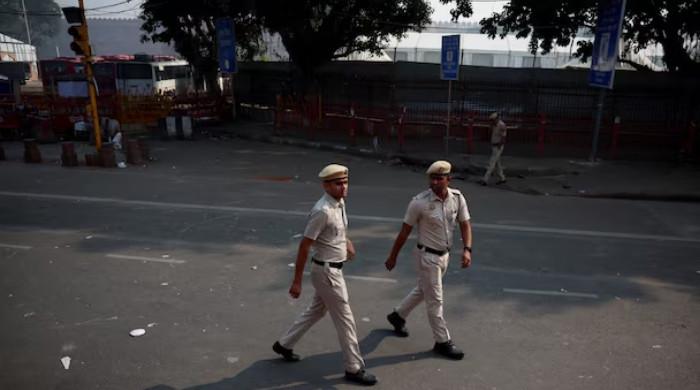
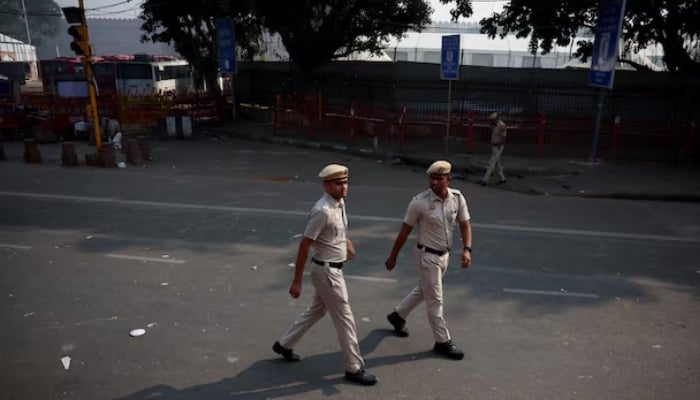
- Officials say suspect Amir Rashid Ali arrested in Delhi.
- NIA seizes vehicle belonging to alleged suicide bomber.
- Ali accused of conspiring with car driver Umar Un Nabi.
India’s federal anti-terror agency on Sunday said it had arrested a resident of Indian Illegally Occupied Kashmir (IIOJK) who it accused of conspiring with the driver of a car that exploded in Delhi last week, killing 12 people and wounding at least 20 others.
The National Investigation Agency said it had arrested Amir Rashid Ali in Delhi, adding the car used in the attack was registered in his name.
The NIA accused Ali of conspiring with the alleged suicide bomber, who it identified as Umar Un Nabi, a resident of IIOJK’s Pulwama district.
It said Ali came to Delhi to facilitate the purchase of the car, which was used as a “vehicle-borne Improvised Explosive Device to trigger the blast.”
The agency said it had seized another vehicle belonging to Nabi for examination. So far, it has interrogated 73 witnesses, including those injured in the blast.
Last week, the Indian government said it was treating the car blast as a “terror incident” and vowed to bring the perpetrators to justice as swiftly as possible.
The blast outside Delhi’s historic Red Fort was the first such explosion in the heavily guarded city since 2011.
It was also the most significant security incident since April 22, when 26 civilians were killed at the tourist site of Pahalgam in IIOJK.
Prime Minister Narendra Modi called the Delhi blast a “conspiracy”, and vowed that those responsible would face justice.
India’s Home Minister, Amit Shah, said he had instructed officials “to hunt down each and every culprit behind this incident”.
The blast occurred four days after an explosion rocked IIOJK’s Srinagar, killing at least nine people and injuring over two dozen.
Indian officials said that the blast took place when a stockpile of confiscated explosives detonated inside a police station, resulting in most fatalities among policemen and forensic team members inspecting the explosives.
Politics
At least 32 killed in DR Congo bridge fall amid scramble at illegal cobalt mine
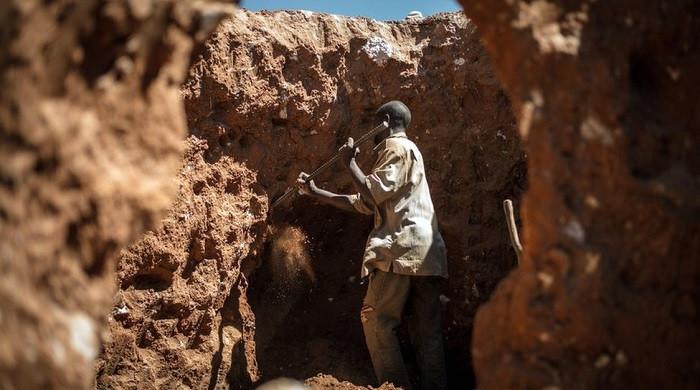
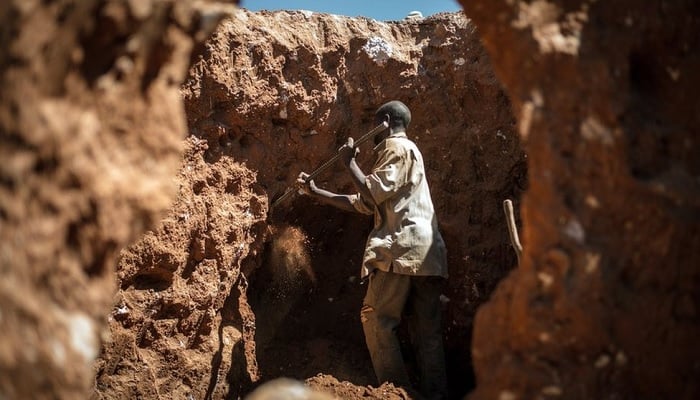
- Bridge falls as miners cross flooded trench despite rain-related access ban.
- Over 30 bodies recovered as search teams continue pulling victims from site.
- DRC’s cobalt sector long faulted for child labour, unsafe conditions, corruption.
A bridge collapsed at a cobalt mine in southeast Democratic Republic of Congo, killing at least 32 wildcat miners, a regional government official said Sunday.
The bridge came down onto a flooded zone at the mine in Lualaba province on Saturday, Roy Kaumba Mayonde, the provincial interior minister, told reporters. He said 32 bodies had been recovered and more were being searched for.
The DRC produces more than 70% of the world’s cobalt supply, which is essential for batteries used in electric cars, many laptop computers, and mobile phones.
More than 200,000 people are estimated to be working in giant illegal cobalt mines in the central African country.
Local authorities said the bridge collapsed at the Kalando mine, about 42 kilometres (26 miles) southeast of the Lualaba provincial capital, Kolwezi.
“Despite a formal ban on access to the site because of the heavy rain and the risk of a landslide, wildcat miners forced their way into the quarry,” said Mayonde.
He said that miners rushing across the makeshift bridge, built to get across a flooded trench, made it collapse.
A report by the SAEMAPE government agency which monitors and helps mining cooperatives said that the presence of soldiers at the Kalando mine had caused a panic.
The report said the mine had been at the heart of a longstanding dispute between the wildcat miners, a cooperative that was meant to organise digging there and the site’s legal operators, who were said to have Chinese involvement.
The miners who fell “piled on top of each other, causing the deaths and injuries”, the report said.
Images sent to AFP by the provincial office of the National Human Rights Commission (CNDH) showed miners digging out bodies from the trench, with at least 17 bodies laid out on the ground nearby.
CNDH provincial coordinator Arthur Kabulo told AFP that more than 10,000 wildcat miners operated at Kalando. Provincial authorities suspended operations at the site on Sunday.
Accusations over the use of child labour, dangerous conditions and corruption have long cast a shadow over the DRC’s cobalt mining industry.
The DRC’s mineral wealth has also been at the heart of a conflict that has ravaged the country’s east for more than three decades.
Politics
Dubai Airshow opens tomorrow with Pakistani pilots in focus


DUBAI: The Dubai Airshow, one of the world’s biggest aviation gatherings, opens today (Monday), bringing together the latest military and commercial aircraft from around the globe.
Organisers say the event is fully prepared to welcome industry professionals and aviation enthusiasts.
This year, Pakistan Air Force (PAF) pilots are expected to take centre stage, with aviation analysts noting that PAF’s exceptional performance in recent operations has become a key point of interest for global air powers.
They emphasise that Pakistan’s pilots have impressed the international military aviation community with their precision, discipline and operational skill.
The show will feature colourful aerial displays, formation flights and aerobatic performances. Analysts expect the PAF demonstrations to be among the most notable of the week, showcasing Pakistan’s advancing air capabilities to a global audience.
Organisers confirm that China’s advanced air defence system will be on display, highlighting the country’s growing challenge to Western and US defence technology.
Russian aerospace industries are also set to participate with a range of military aircraft and systems.
From Pakistan, the Pakistan Aeronautical Complex (PAC) will present its latest aviation technology and MRO capabilities, while the Pakistan Aerospace Council will represent the country’s broader aviation sector.
Industry insiders expect strong commercial activity during the event, with forecasts of around 300 new aircraft orders that could reshape market dynamics in the global aviation industry.
Politics
Britain to make refugee status temporary under asylum overhaul
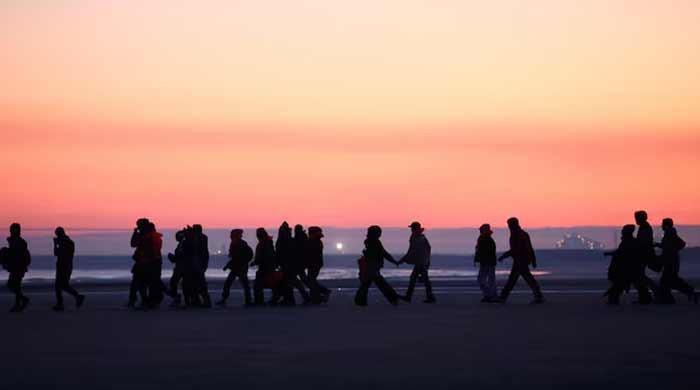
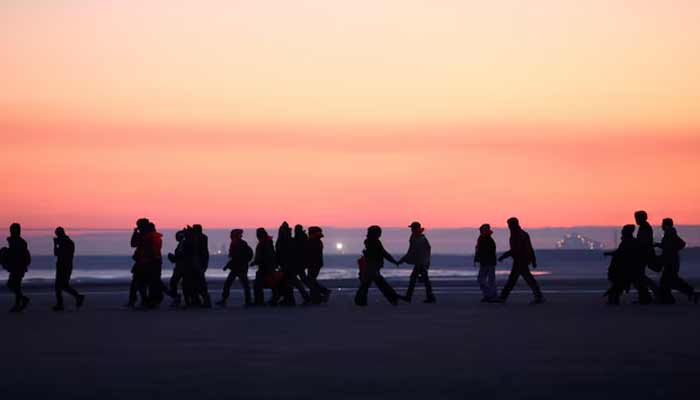
Britain said it would make refugee status temporary and the wait for permanent settlement would be quadrupled to 20 years under the country’s most sweeping overhaul of policy on asylum seekers in modern times.
The Labour government has been hardening its immigration policies, above all on illegal small-boat crossings from France, in efforts to stem the soaring popularity of the populist Reform UK party, which has driven the immigration agenda.
The government said it would take inspiration from Denmark’s approach, one of the toughest in Europe — where growing anti-immigrant sentiment has led to increased restrictions in many countries — and widely criticised by rights groups.
Temporary status subject to review
As part of the changes, the statutory duty to provide support to certain asylum seekers, including housing and weekly allowances, will be revoked, the Home Office (interior ministry) said in a statement issued late on Saturday.
The department, led by Shabana Mahmood, said the measures would apply to asylum seekers who can work but choose not to, and to those who break the law. It said that taxpayer-funded support would be prioritised for those contributing to the economy and local communities.
The Home Office also said that protection for refugees would “now be temporary, regularly reviewed and revoked” if the home country was deemed safe.
“Our system is particularly generous compared to other countries in Europe, where, after five years, you’re effectively automatically settled in this country. We will change that,” Mahmood told Sky News on Sunday.
She added that under the changes, a refugee’s status would be reviewed every two-and-a-half years, during “a much longer path to permanent settlement in this country of 20 years”.
Mahmood said she would provide further details of the changes on Monday, including an announcement on Article 8 of the European Convention of Human Rights.
The government has said it wants to stay in the ECHR but change how the Article 8 provision, covering the right to a family life, is interpreted.
Mahmood said it was being “applied in a way that is designed to frustrate the removal of those that, under our immigration rules, would not have the right to be in this country.”
The government’s tougher approach has drawn criticism. More than 100 British charities wrote to Mahmood, urging her to “end the scapegoating of migrants and performative policies that only cause harm”, saying such steps are fuelling racism and violence.
Polls suggest immigration has overtaken the economy as British voters’ top concern. Over the summer, protests took place outside hotels housing asylum seekers at public expense.
A total of 109,343 people claimed asylum in the UK in the year ending March 2025, a 17% rise on the previous year and 6% above the 2002 peak of 103,081.
Mahmood said the government would look to open more “safe and legal” routes for asylum seekers, as she believed Britain should play its part in helping those fleeing danger.
UK inspired by Denmark, other European countries
The Home Office said its reforms would look to “match and in some areas exceed” the standards of Denmark and other European countries, where refugee status is temporary, support is conditional, and integration in society is expected.
Asylum seekers are granted temporary residence permits under Denmark’s approach, usually for two years, and they must reapply when these expire. They can be repatriated if their home country is deemed safe, and the path to citizenship has also been lengthened.
The Home Office said Denmark’s more restrictive immigration policies had reduced asylum claims to a 40-year low and resulted in the deportation of 95% of rejected applicants.
Denmark’s reforms, implemented while it remains a signatory to the ECHR, have drawn sharp criticism. Rights groups say the measures foster a hostile climate for migrants, undermine protection and leave asylum seekers in prolonged limbo.
Britain’s Refugee Council said on X that refugees do not compare asylum systems while fleeing danger, and that they come to the UK because of family ties, some knowledge of English, or existing connections that help them start anew safely.
-

 Entertainment1 week ago
Entertainment1 week agoChina unveils£5.4 bn Fujian, its most advanced aircraft carrier yet
-

 Tech6 days ago
Tech6 days agoFrom waste to asset: Turning ethanol production CO₂ into jet fuel
-

 Politics1 week ago
Politics1 week agoIDF lawyers warned of possible Gaza war crimes: US intel findings
-

 Entertainment1 week ago
Entertainment1 week agoRobert Pattinson jokes about competing with Gen Z
-

 Sports1 week ago
Sports1 week agoIsraeli cycling team loses top sponsor despite honoring request to remove country from name
-

 Tech1 week ago
Tech1 week agoThe Government Shutdown Is a Ticking Cybersecurity Time Bomb
-
Sports1 week ago
College football winners and losers: The catch of the year saves Indiana
-
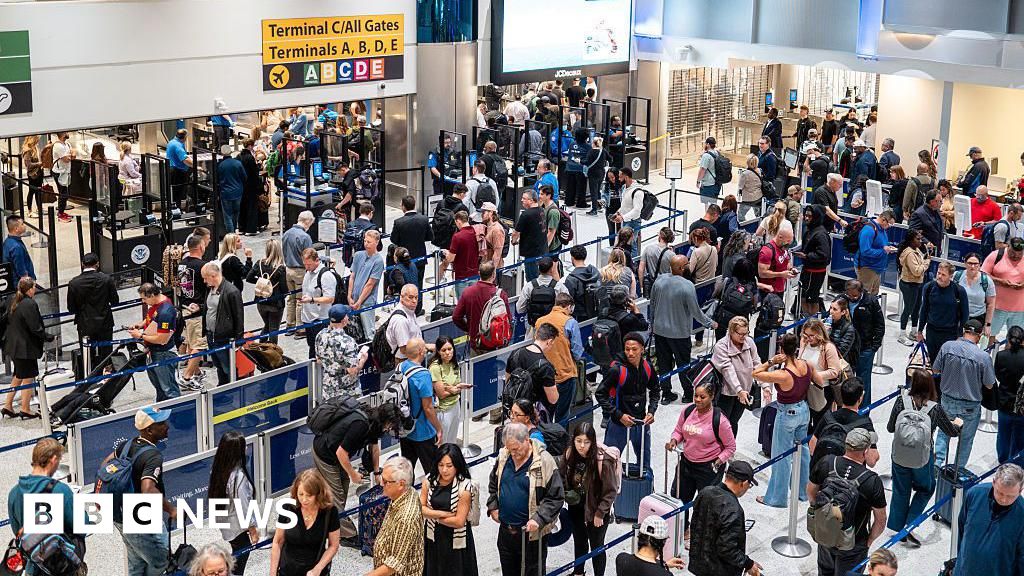
 Business1 week ago
Business1 week agoMore than 1,000 flights cancelled as US air traffic cuts enter second day






